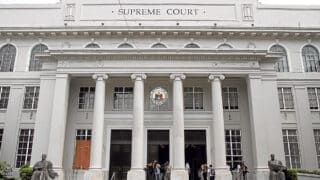The government is set to release on Monday the final version of the Air Passenger Bill of Rights, which is expected to take effect just before Christmas.
The final version of the new measure, which aims to protect travelers from what are perceived to be abusive practices by airlines looking to cut corners to lower costs at the expense of customer service, was signed Friday by Transportation and Communications Secretary Joseph Emilio Abaya and of Trade and Industry Secretary Gregory Domingo.
The new measure would be published this week “in order to have it in effect before Christmas,” Abaya said, though he admitted that it would be “cutting it close.”
All new government measures take effect two weeks after copies are published in newspapers of general circulation.
The creation of the bill of rights, spearheaded by former Transportation Secretary Mar Roxas (now secretary of the interior and local government), was done in response to a sudden spike in passenger complaints against local airlines.
Most complaints filed before the Civil Aeronautics Board (CAB) centered around cases of overbooked flights and the “insensitive” treatment of affected passengers.
The most recent draft of the bill of rights would require airlines to provide free food, drinks, Internet access, phone use and, in extreme circumstances, hotel lodging until the flight departures for passengers affected by late flights.
For lost luggage, airlines will have to compensate passengers P2,000 for every day that a bag is missing. After seven days, that bag will be deemed lost and the passenger will be paid the equivalent of 500 SDRs, or special drawing rights, a currency unit created by the International Monetary Fund. One SDR is equivalent to P63.
Another new addition to the latest draft was the need for airlines to seek the DTI’s approval for airline promotions and the sale of discounted tickets. Currently, airlines only need to seek approval from the CAB.
The new rule means airlines will have to deal simultaneously with the DTI and the CAB, with the former approving the mechanics of promos and the latter approving the price.



